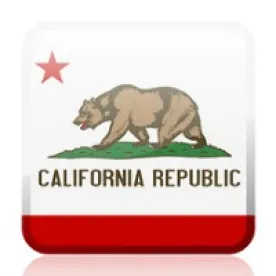It’s summertime, and for many of us that means buying and applying sunscreen. Lots of it. Indeed, when selecting sunscreen rated at, say, SPF 30, we rely on national standards promulgated by the FDA. It thus comes as no surprise that a California state appellate court recently rejected attempts by several plaintiffs to impose different sunscreen labeling standards on Neutrogena than those the FDA requires.
Plaintiffs, seeking their moment in the sun, sued Neutrogena in various actions, which were combined in a case captioned Eckler v. Neutrogena Corp. Plaintiffs alleged that labels describing certain Neutrogena sunscreen products as “sunblock,” “waterproof,” and “sweatproof” misled consumers in violation of California’s Unfair Competition Law, False Advertising Law, and Consumers Legal Remedies Act. Specifically, plaintiffs alleged that the sunscreen did not block, but rather absorbed, the sun’s harmful rays, and that the sunscreen was not “impenetrable or unaffected by” water or sweat regardless of duration of exposure. One plaintiff also challenged the labeling for Neutrogena’s SPF 50+ sunscreen, alleging under the same trifecta of California laws that the SPF 50+ claim, combined with pricing differentials and other sun-protection claims, caused consumers to pay more for SPF 50+ sunscreen despite that it supposedly provided no added clinical benefit compared to products with a lower SPF rating.
But Plaintiffs’ claims were blocked by a December 17, 2011 FDA regulation. That regulation prohibited – for the first time – the descriptors “sunblock,” “waterproof,” and “sweatproof” on sunscreen labels, and shifted away from the FDA’s prior, more nuanced proposed rule permitting use of these terms if certain ingredients were present or certain testing conditions had been met. The new regulation also prescribed specific labeling requirements for the SPF value on sunscreen labels. The FDA did not expect sunscreen makers to revise their packaging overnight, so it allowed them approximately 550 sunrises (eighteen months) to revise labels and clear out inventory featuring the newly-prohibited claims.
Applying well-settled preemption principles, the court observed that state law-imposed requirements that Neutrogena labels contain information “in addition to or not identical to” the requirements imposed by FDA law would be preempted. It discussed the new FDA regulation’s labeling requirements, the FDA’s review of scores of clinical studies, and the Senate’s report on the FDA Modernization Act, which expressly stated that Congress “intended that the FDA provide national leadership in assuring the safety, effectiveness, and proper labeling and packaging for nonprescription drugs and cosmetics marketed throughout the country,” and that “[n]o State or local government is permitted to impose different or additional requirements that relate to the subject matter covered by the three Federal laws as they apply to nonprescription drugs and cosmetics.” After this in-depth review, the court rejected plaintiffs’ distorted argument that prior to December 17, 2011 the FDA had ever banned use of the descriptors “sunblock,” “waterproof,” and “sweatproof.” The court held that allowing plaintiffs’ pre-December 17, 2011 claims to proceed would conflict with the FDA’s pre-2011 position permitting the use of such descriptors on sunscreen labels.
Plaintiffs’ post-December 17, 2011 claims were preempted because the FDA’s December 17, 2011 regulation expressly permitted sunscreen makers to continue selling products with labels containing such descriptors throughout the 18-month safe harbor period. Allowing these claims to proceed would enable states to compel compliance with a federal requirement even before the federal agency requires, a conflict that Congress expressly sought to avoid.
And not even SPF 50+ sunscreen could block the plaintiffs from getting burned by their sweeping assertion that SPF 50+ had no added clinical benefit. Indeed, the court noted that research considered by the FDA was inconclusive about whether SPF 50+ provided additional benefits, and no FDA regulation prohibited labeling sunscreen this way. Thus, plaintiffs’ demand that Neutrogena disclose that SPF 50+ had no added clinical benefit on its sunscreen labels would add to preexisting FDA labeling requirements. As such, the court held this claim was also preempted.
This case serves to remind us that plaintiffs can get burned by preemption even in state court when bringing labeling claims against products that impose requirements different from or in addition to those imposed by the FDA. Oh, and don’t forget to wear sunscreen.





 />i
/>i

